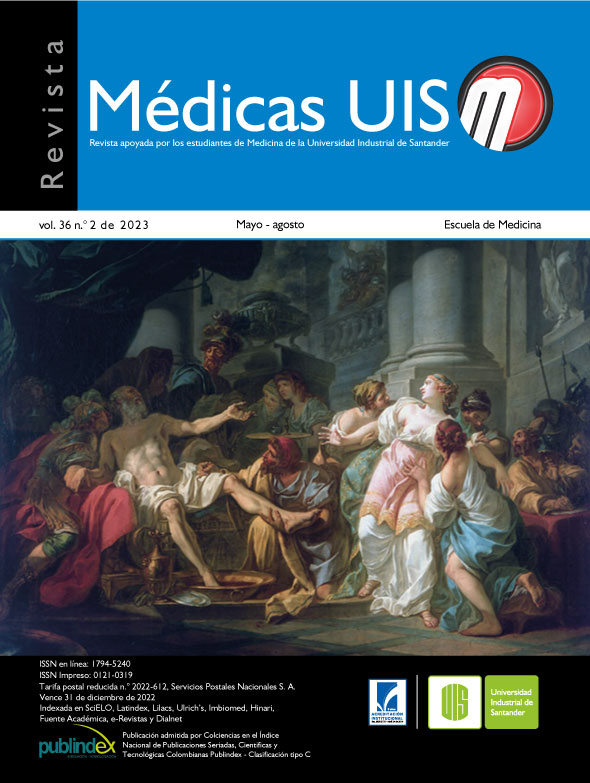Abstract
Introduction: learning styles are student traits that can aid in curriculum planning in medical education. It is not known for certain if any specific learning style is related to satisfaction in continuing medical education or if it increases the chances of accessing a medical residency. Objective: the learning styles are student traits that can aid in curriculum planning in medical education. This study aimed to categorize learning styles within a cohort of physicians, describe their satisfaction according to each learning style, and assess access to a medical residency program. Methods: a cross-sectional study was conducted with physicians attending a diploma in clinical and surgical areas. Learning styles were categorized according to the CAMEA40 questionnaire. The median differences of course satisfaction was calculated. Subsequently, the association between each learning styles and access to a medical residency post was evaluated. Results: three hundred eleven (n = 311) agreed to participate. A total of 75 % had between one and two dominant learning style, the most frequent being the reflective/theoretical (n = 108; 34,7 %). No greater overall satisfaction associated with a particular learning style was found. Conclusion: one-third of the doctors had a reflective/theoretical profile. The overall satisfaction and access to a medical residency were no associated with any learning style.
References
Cook DA. Where are we with Web-based learning in medical education? Med Teach. 2006;28(7):594-598.
Camacho JA, Chiappe A, López de Mesa C. Blended Learning y estilos de aprendizaje en estudiantes universitarios del área de la salud. Educ Médica Super. 2012;26(1):27-44.
Kaini S, Motie LZ. Virtual vs Online: Insight From Medical Students. Comment on “Effectiveness of Virtual Medical Teaching During the COVID-19 Crisis: Systematic Review.” JMIR Med Educ. 2021;7(2):e2702.0.
Ministerio de Salud y Protección Social [Internet]. Bogotá. El Ministerio de Salud y la Federación Médica Colombiana ofrecerán nuevamente el programa de capacitación en ETV ahora con Chikunguña. [citado en Marzo 28 de 2015]; [aprox. 2 p.] Disponible en: https://web. archive.org/web/20150523180658/http://www. cursoetv.co/
Ministerio de Salud y Protección Social. MinSalud adelanta formación virtual para la atención de víctimas de violencias sexuales. 2014 Ago 13. Disponible en: http://www.minsalud. gov.co/Paginas/MinSalud-adelanta-formaciónvirtual-para-la-atención-de-v%C3%ADctimas-deviolencias-sexuales.aspx
Ahmady S, Kallestrup P, Sadoughi MM, Katibeh M, Kalantarion M, et al. Distance learning strategies in medical education during COVID-19: A systematic review. J Educ Health Promot. 2021;10:421.
Madrigal AJ, Trujillo JM. Adaptación del Cuestionario Honey-Alonso de Estilos de Aprendizaje para estudiantes de una institución universitaria de Medellín. J Learn Styles. 2014;7(13): 155-181.
Alonso CM, Gallego DJ, Honey P. Los Estilos de Aprendizaje: Procedimientos de Diagnóstico y Mejora. 7a Edición. Bilbao: Ediciones Mensajero; 1995.
Cook DA, Gelula MH, Dupras DM, Schwartz A. Instructional methods and cognitive and learning styles in web-based learning: report of two randomized trials. Med Educ. 2007;41(9):897- 905.
Cook DA, Thompson WG, Thomas MR, Pankratz VS. Impact of Self-Assessment Questions and Learning Styles in Web-based learning: a randomized, controlled, crossover trial. Acad Med. 2006;81(3):231-238.
Gurpinar E, Alimoglu MK, Mamakli S, Aktekin M. Can learning style predict student satisfaction with different instruction methods and academic achievement in medical education? Adv Physiol Educ. 2010;34(4):192-196.
Chae SJ. Medical students’ satisfaction on online flipped learning by learning styles. Korean J Med Educ. 2021;33(4):405-409. doi:10.3946/ kjme.2021.208
Ochoa-Zuluaga LF. Informe de Pasantía y Trabajo de Grado de La Maestría En Salud Pública: Análisis Sobre La Cantidad de Especialistas En El Sistema de Salud Colombiano y La Incidencia de Los Cupos de Residencia Medica Sobre Estos [Tesis doctoral]. Bogotá: Universidad del Rosario; 2018.
Al-Roomy MA. The Relationship Among Students’ Learning Styles, Health Sciences Colleges, and Grade Point Average (GPA). Adv Med Educ Pract. 2023;14:203-213.
Cook DA. ¿Debo utilizar el aprendizaje en línea?. Investigación educ. médica. 2013;2(5):3-6.
Cook DA. Learning and cognitive styles in web-based learning: theory, evidence, and application. Acad Med. 2005;80(3):266-278.
Schattner A. Teaching clinical medicine: the key principals. QJM. 2015;108(6):435-442.
Gurpinar E, Bati H, Tetik C. Learning styles of medical students change in relation to time. Adv Physiol Educ. 2011;35(3):307-311.
Bautista JE. Identificación de los estilos de aprendizaje en los estudiantes de fisiología del ejercicio de la Facultad de Rehabilitación y Desarrollo Humano. Rev Cienc Salud. 2006[citado 2017 May 30];4(2):41-53. Disponible en:http://revistas.urosario.edu.co/index.php/ revsalud/article/view/706
Nilsson M, Östergren J, Fors U, Rickenlund A, Lennart Jorfeldt, Caidahl K, et al. Does individual learning styles influence the choice to use a webbased ECG learning programme in a blended learning setting? BMC Med Educ. 2012;12(5).
Wilkinson T, Boohan M, Stevenson M. Does learning style influence academic performance in different forms of assessment? J Anat. 2014;224(3):304-308.
Almigbal TH. Relationship between the learning style preferences of medical students and academic achievement. Saudi Med J. 2015;36(3):349-355.
Stickle JE, Lloyd J, Keller WF, Cherney E. Learning Styles in Veterinary Medicine: Relation to Progression through the Professional Curriculum and Integration into the Profession. J Vet Med Educ. 1999;26(2):9-12.
Cook DA. If you teach them, they will learn: why medical education needs comparative effectiveness research. Adv Health Sci Educ. 2012;17(3):305-310.

This work is licensed under a Creative Commons Attribution 4.0 International License.
Copyright (c) 2023 Médicas UIS

